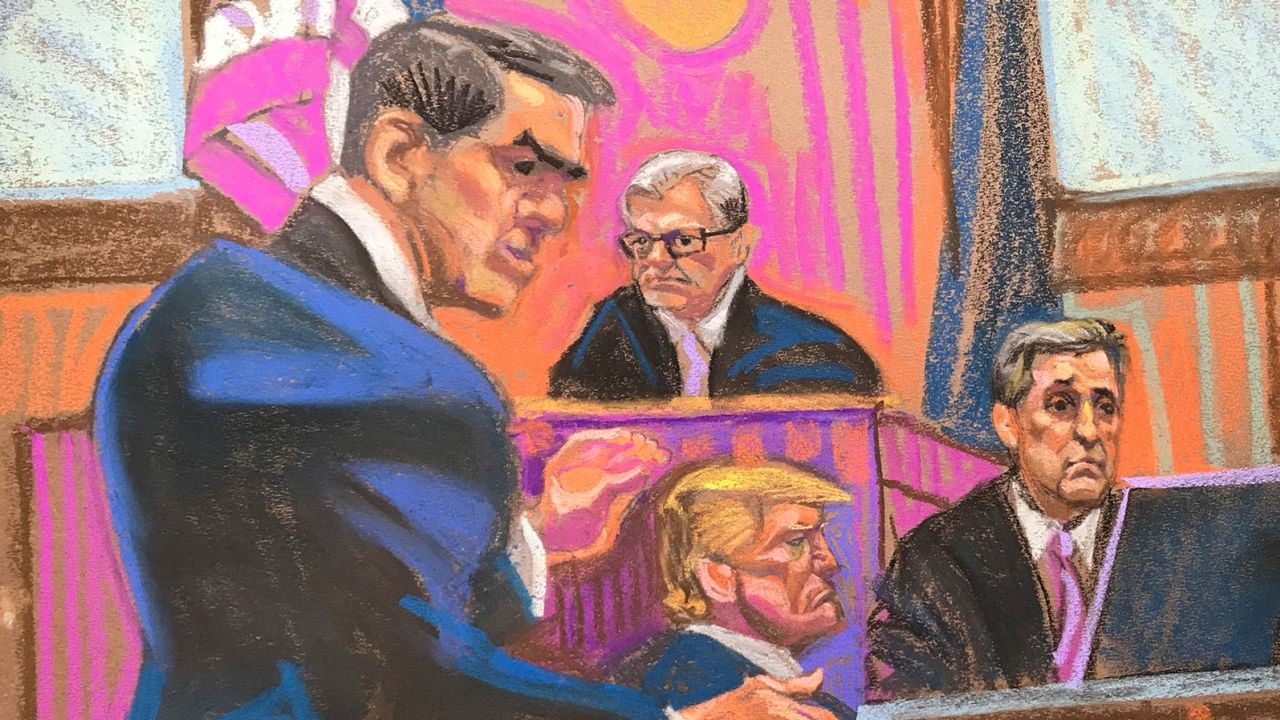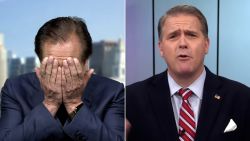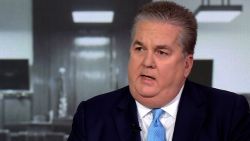Donald Trump finally had a good day in court.
The presumptive GOP nominee has often seemed embarrassed and infuriated by his first criminal trial, which has featured salacious exposés of his personal life and details of his alleged attempts to cover it up.
But on Thursday, he got to savor his former fixer-turned-enemy Michael Cohen wobbling on the stand under a fearsome cross-examination. Cohen appeared to be tripped up over an account of a call he’d previously said under oath was to discuss Trump’s hush money payment to adult film Star Stormy Daniels. It emerged under questioning on Thursday that, at least to begin with, the topic of the call was about another matter entirely.
It was the kind of inconsistency that Trump’s attorneys can use to try to sow reasonable doubt about Cohen’s truthfulness and credibility in the mind of a single juror. That’s all it would take for Trump to walk. And now, the prosecution faces a stiff challenge in repairing the damage when they get to their redirect examination of Cohen’s testimony following the close of cross-examination next week. “I think what happened today still is so devastating they have to do something,” Ryan Goodman, a professor at NYU Law, told CNN’s Erin Burnett. “If the case ended today and there were final statements, I think there would not be a conviction.”
Trump left court after a day in which he was supported by another posse of GOP lawmakers, including Florida Rep. Matt Gaetz, well satisfied. “I think it was a very interesting day, it was a fascinating day. And it shows what a scam this whole thing is,” the former president said. His hyperbolic spin and unique take on proceedings rang less hollow than usual given several positive moments for the defense in what has largely been a grim month for Trump in the courtroom.
Another day of testimony from Cohen, the prosecution’s critical witness, came as the case hurtled toward its climax with the judge telling lawyers to be ready to deliver summations as early as Tuesday. That means it’s feasible the jury will retire to consider its verdict in the first criminal trial of a former president sometime after Memorial Day and just five months before Trump hopes to reclaim the White House.
A pivotal moment
On Tuesday, when the court was last in session this week, Trump’s attorney Todd Blanche had what most legal experts viewed as a rough day as he embarked on the cross-examination of Cohen. But he bounced back in a big way Thursday.
Blanche first spent time seeking to destroy Cohen’s credibility. He highlighted the former Trump fixer’s proven history of lying for his former boss and on his own behalf. And using text messages and social media posts, he established that Cohen resented Trump and wanted to see him convicted in a case in which the ex-president is accused of falsifying financial records to hide the payoff in 2016 in an early example of election interference. (He has pleaded not guilty and denied the affair with Daniels.)
Then, in one of the most dramatic moments in the entire trial, Blanche drilled down on a call that Cohen placed to his boss’ bodyguard, Keith Schiller, who was with Trump on October 24, 2016. Cohen had testified earlier this week that the purpose of the call was to discuss with Trump “the Stormy Daniels matter and the resolution of it.” But Blanche produced a text from Cohen to Schiller before the call in which the lawyer said he wanted to get help in dealing with a 14-year-old who was prank calling him. He didn’t mention Daniels in the text ahead of the conversation, which only lasted 96 seconds.
“That was a lie!” Blanche said, raising his voice. “You did not talk to President Trump on that night, you talked to Keith Schiller. … You can admit it.” Blanche argued that it was impossible that Cohen would have had sufficient time to discuss the prank calls and then go on to update Trump about the complicated situation with Daniels.
Cohen insisted, “I believe I also spoke to President Trump and told him everything regarding the Stormy Daniels matter was being worked on and it’s going to be resolved.”
Blanche then wielded a rhetorical dagger, telling Cohen: “We are not asking for your belief – this jury doesn’t want to hear what you think happened.” Judge Juan Merchan sustained an immediate objection from the prosecution to the comment, but Trump’s lawyer had emphatically made his point.
The exchange was so significant because – notwithstanding days of testimony and evidence put on by the prosecution to corroborate claims that Trump broke the law – the case still largely depends on Cohen, himself a convicted felon who has a proven record of lying.
Since the burden to prove the case beyond a reasonable doubt lies with the prosecution, the exchange could raise the chances of at least one juror questioning Cohen’s version of events. And it also raises the possibility that some jurors might believe that they have been lied to by Cohen earlier in the trial. If such a feeling takes hold among jurors, who have put their lives on hold to hear the case, it could be disastrous to the prosecution.
‘A blow on the chin’
No one can say how individual members of the jury will sift the evidence and competing testimony. But experienced trial lawyers immediately spotted a potential turning point. “I think it has to have raised some doubt,” criminal defense attorney Nikki Lotze said on CNN’s “The Situation Room” of Blanche’s clash with Cohen. “There was testimony previously that this phone call was about X and now there are texts that suggest it is about Y … and not a lot of time for there to be a conversation about both X and Y.“
Jim Trusty, a former Trump attorney, also believed the exchange was significant and was cause for the ex-president to feel upbeat. “The defense set the whole trial up to be a referendum on Cohen’s honesty. That is exactly where you want this fight to be, so it is a good moment,” he said.
When Blanche eventually wraps up his cross-examination of Cohen, the prosecution will get a chance to try to repair any damage from one of the trial’s most significant moments so far. Some experts pointed out that it was only one small blip compared to a mountain of evidence, much of which looks potentially problematic for Trump.
Norm Eisen, a CNN legal analyst, said that Blanche’s apparent trip-up of Cohen was good professional lawyering by the defense, but he disputed the idea that the episode was devastating to the prosecution case. “It was a blow on the chin. My experience of 30 years of doing this is it takes more than one punch to knock out a witness,” Eisen told CNN’s Anderson Cooper. Conservative lawyer and sworn Trump critic George Conway, who was also in court Thursday, told CNN that while there were some good moments for Blanche, much of his cross-examination was “scattered” and meandering and did not establish a strong narrative.
But another less theatrical moment in Thursday’s testimony may also offer the defense a strong opening in their final summation to the jury. Blanche asked Cohen about a time when he said he lied under oath to a judge in a different case because “the stakes affected you personally.” Cohen agreed he had.
Then Blanche asked Cohen: “Does the outcome of this trial affect you personally?” Cohen answered, “Yes.” The unspoken implication here is that if Cohen lied in a previous trial that affected him personally, why would he not do the same in a trial involving his now sworn foe, the former president?
Again, the defense doesn’t have to prove Cohen is lying. It just has to make one juror think it’s possible — and therefore make impossible the unanimous verdict needed for conviction.
Many prosecutions use potentially problematic witnesses with histories of lying and demonstrated antipathy toward the accused all the time — for instance, in organized crime cases where lower-ranking associates are used to incriminate kingpins despite their own legal vulnerabilities. So Cohen’s struggles at a key moment on Thursday don’t necessarily mean this case is in deep trouble.
But everyone connected with the trial knew before it began that Cohen’s pivotal role in this case represented a risk for the prosecution. The huge scale of that gamble was laid bare in court on Thursday.





















